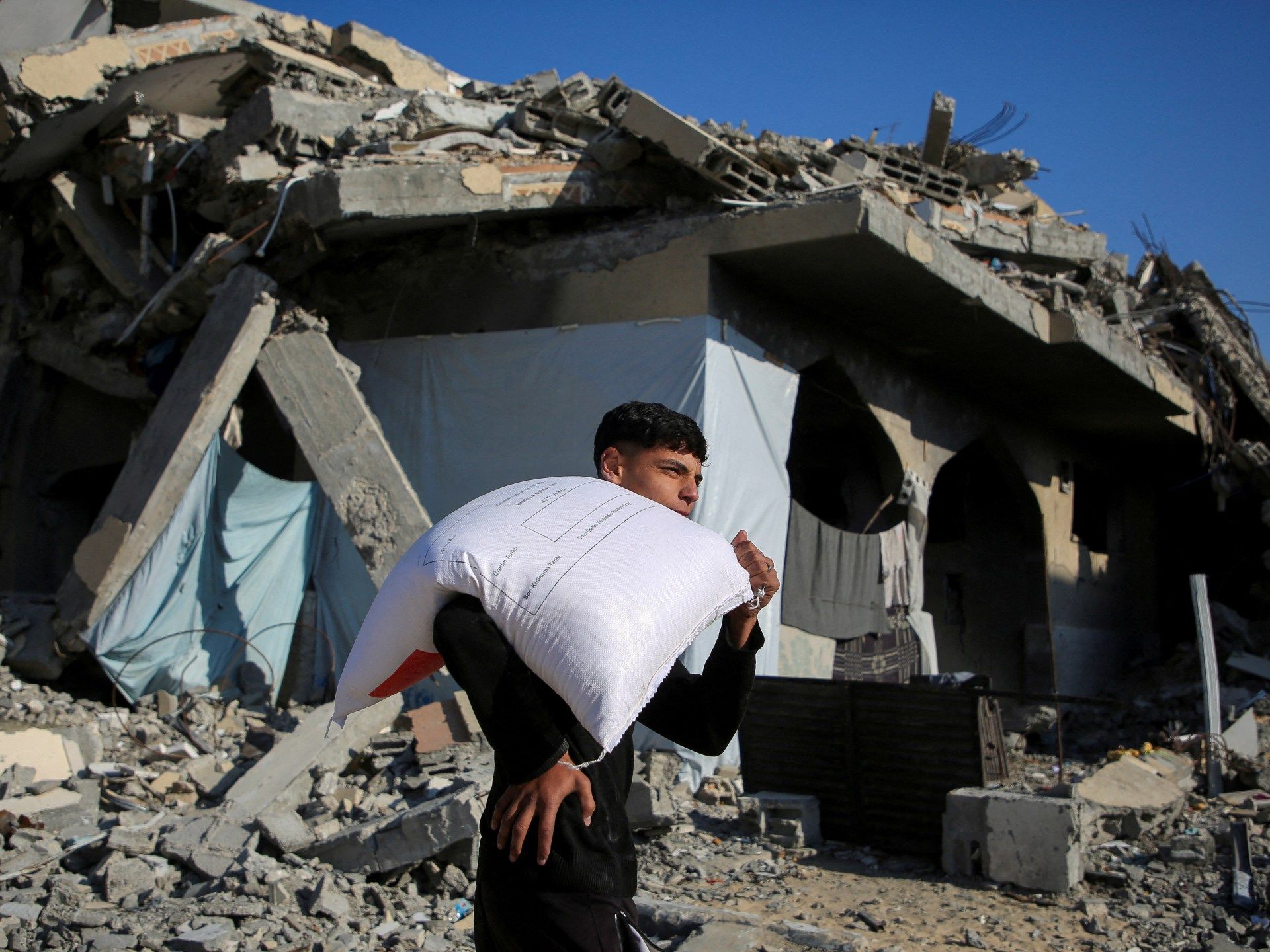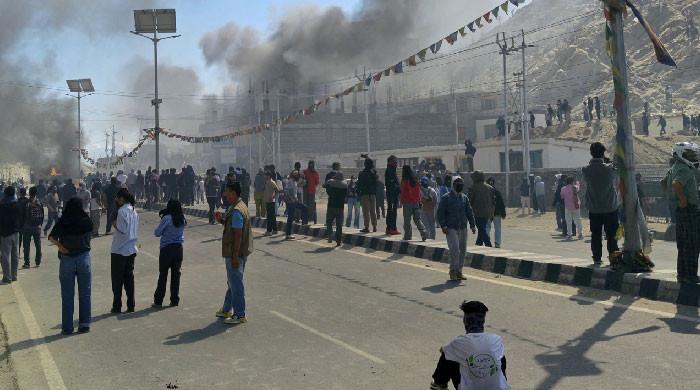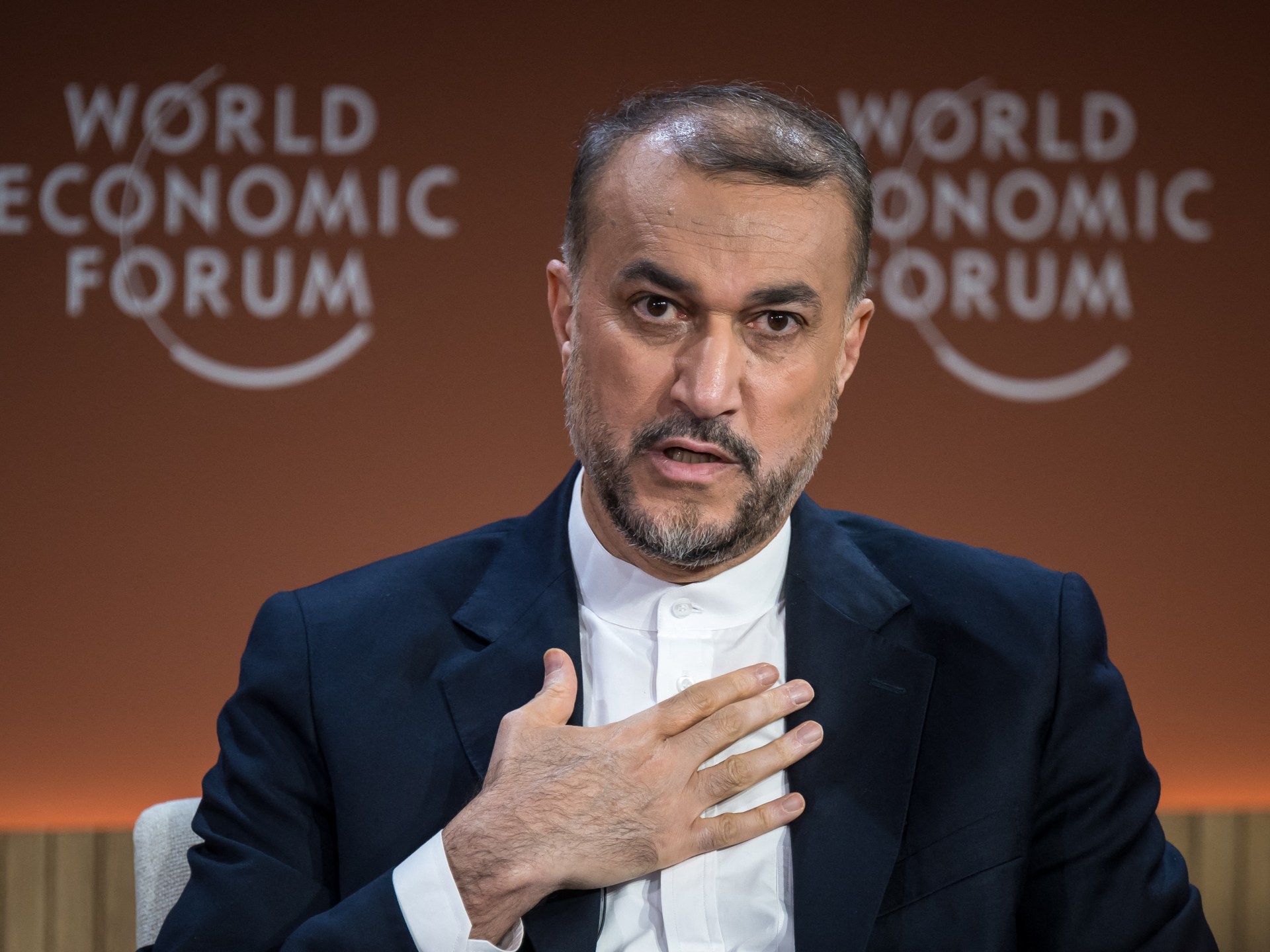OCHA hopes to reach 190 million people in “extreme need” amid a double whammy of spiraling conflict and climate crisis.
The new United Nations humanitarian chief has warned that tough decisions will be needed as he calls for more than $47 billion to deliver aid next year.
The head of the Office for the Coordination of Humanitarian Affairs (OCHA), Tom Fletcher, said during an annual funding appeal on Wednesday that he was looking ahead to 2025 with “dread” after a bout of “donor fatigue” left more than half of this previous year's request for $50 billion has not been met.
“The world is on fire, and this is how we put it out,” Fletcher told reporters in Geneva, noting that action is desperately needed due to spiraling conflicts in places like Gaza, Sudan and Ukraine, while climate change and Extreme weather conditions are increasing. also causing “an unprecedented level of suffering.”
The OCHA chief pledged to be “ruthless” in prioritizing how the $47.4 billion sought for next year would be spent. Plans are being drawn up to channel assistance to “those who need it most,” he said, including some 190 million people fleeing conflict and battling hunger. In total, the UN hopes to reach people in 32 countries next year.
As of last month, only 43 percent of the $50 billion appeal by 2024 had been met, and lack of funding led to an 80 percent reduction in food aid in Syria, cuts to protection services in Myanmar and a decline in aid for water and sanitation in cholera-prone Yemen. , the UN agency said.
The United States, which contributed more than $10 billion last year, is the largest donor. Fletcher acknowledged fears that President-elect Donald Trump could cut funding and said he expected to spend “a lot of time” in Washington over the coming months.
Jan Egeland, director of the Norwegian Refugee Council, who headed OCHA between 2003 and 2006, said the US funding was “a tremendous question mark.”
“If the US administration were to cut its humanitarian funding, it could be more difficult to fill the gap of growing needs,” he said.
The 2025 appeal is the fourth largest in OCHA's history, but Fletcher stressed that it still leaves out about 115 million people whose needs the agency cannot realistically hope to fund.
The global humanitarian system “is overstretched, underfunded and literally under attack,” Fletcher said. “We need an increase in global solidarity,” he said.
At least 281 aid workers have been killed this year, the highest number ever recorded, in places including Gaza, Sudan, Ukraine and the Democratic Republic of the Congo.












